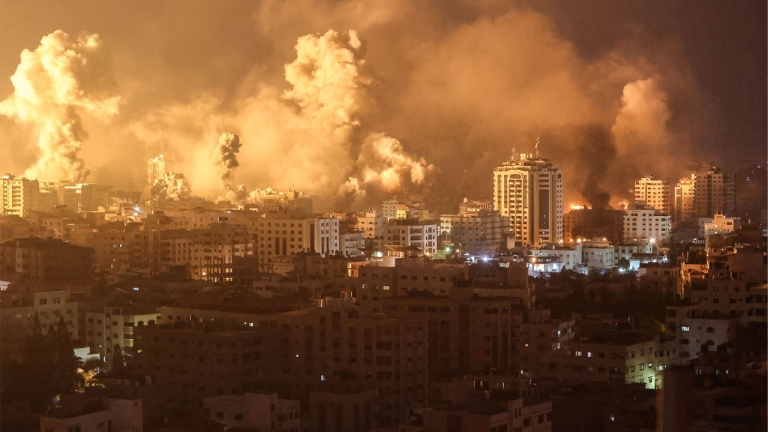On October 7, 2023, a Palestinian militant group called Hamas launched an airstrike into towns in Israel, killing more than 1,400 individuals. According to Israel’s authorities, there were over 200 hostages in this situation. Since 1948, in the Arab-Israeli war, the country in the Middle East has not faced any other adversaries in its land and has never faced such an intense terrorist attack as the one experienced, affecting the lives of a high number of civilians, elderly people, and even children. According to researchers in CNN News, the recent operation was called “Al-Aqsa Storm,” and it was stated that it was a response to what it described as Israeli attacks on women, the desecration of the Al-Aqsa mosque in Jerusalem, and the ongoing siege of Gaza. As a response, Israel has been pummelling Gaza with airstrikes, leading to the death of 2,800 citizens from Palestine. With this, the country has mobilized several military reserve forces, and recently, troops are concentrated at the border.
As an attempt to aid the population that has been suffering not only from missile attacks but also from the humanitarian crisis that followed, after Israel cut food, water, and electricity supplies to Gaza, demanding that Hamas release the hostages, Egypt intends to open the Rafah border crossing to allow aid supplies into southern Gaza. Due to the risk of this conflict developing into a long-term humanitarian crisis, the World Health Organization warned countries that urgent access to Gaza in order to deliver medical supplies and humanitarian aid is needed to prevent this situation. The concerns due to the lack of water are high, and deaths, mass dehydration, and waterborne diseases could become a problem. Aside from that, hospitals in the Gaza Strip are becoming exceedingly overwhelmed and are at risk of running out of fuel for their backup generators, which are needed to treat the many patients who were injured after the retaliatory air strikes. The issue of overwhelmed hospitals was aggravated due to the fact that several other hospitals and healthcare facilities were bombed and damaged in the explosions. With fewer hospitals being available and safe for patients, the ones who are still standing need to deal with many more patients than they can handle, especially with the ongoing siege. An example is the attack on the Al-Ahli Arab Hospital in Gaza City, which left several casualties.
Around 600,000 have already left northern Gaza after Israel ordered the evacuation. They were told to move to Wadi Gaza in order to escape the Israeli counterattacks. However, this did not stop the immense number of deaths, even for those who did try to escape, since several women and children were killed after a strike hit their evacuation route.
Currently, due to the attacks in Israel, the country is being affected in several aspects: population, safety, and others. Israel’s population is suffering significantly because of the dangers of the attacks; children, for instance, make up between 30%- 40% of the wounded people. Civilians were warned by the IDF to leave their residences and find somewhere safe to accommodate; they, however, believe that there is no safe place to go to since all crossings of Gaza have been shut. On Friday (13), Israel’s military told the 1.1 million people in Gaza to evacuate their homes immediately. As a result of the humanitarian crisis in the Gaza Strip, it is rapidly spiraling amid warnings that people are at risk of starvation. Hospitals there are at their “breaking point,” according to WHO (World Health Organization), as they are expected to run out of fuel and enter catastrophic conditions. Meanwhile, human rights groups have warned of possible war crimes being committed by Israel in Gaza. Furthermore, Hamas also notified Gazans not to leave their homes since they are supposedly suffering “psychological warfare” from Israel. Given these facts, people are at extreme risk by being in Israel– which used to be one of the safest countries to visit– and there is a major crisis regarding several points of this country.



